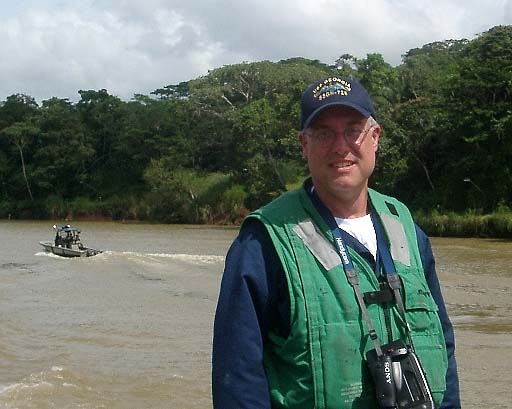The Mullahs' Next Steps
Since Day One of the planned operation to snatch British sailors from Iraqi waters, the Pasdaran (Revolutionary Guards) "War Kitchen" in Tehran had already drawn multiple recipes for the following weeks and potentially months to come. Indeed the regime, reacting to rising pressures from sectors of its own population and from the American-British-led coalition, engineered an "escalating" incident. The main scenario, as projected inside the minds of the Iranian "Jihadi-cooks," is based on one request from the Khamenei-Ahmadinejad regime: waste time, as much time as possible. To the mullahs and their men in power, it is crucial to win the race between rising internal pressure inspired by the political changes in the region and pressure against the Iranian-led "axis" in the region, directed at the U.S. and the U.K. initiatives in Iraq. In short, Tehran's regime wants to crumble its enemies before they crumble it.Read the whole thing to see how this is playing out. Once explained, the shape of it is clear. A sample;
"Catching" a British Navy unit off the shores of Iraq -- regardless of the GPS positioning of the unit -- is the opening play. In ten days, Tehran has already scored one success: The UN is discussing what to do about the 15 British sailors instead of how to shut down the 15 nuclear centers in Iran. The debate has been deflected and is now in the hands of the Iranian cooks. The opening play is followed by the dramatization of the "incident." First, the regime begins showing the captives and swings media attention between details ("were they in Iranian waters?") and outcomes ("will they be tried?") of the phony case. Another psychological victory is scored: The international press follows the Iranian maestro's gesticulations. As usual with the Western mainstream media, the story's details become the devil, and their readers are denied the big picture. Here is how the mullahs' "psych-war" develops and could evolve in different directions.
What is also to be expected is the circulation in the media of stories about an "internal struggle" between the good guys and the bad guys in Tehran. Media reports are already talking about two poles inside the military security apparatus, giving some hope to the Western voices calling for calm and diplomacy.There is a lot more, read it all.
On April 1, the Sunday Times reported that "Major-General Yahya Rahim Safavi is said to have told the country's Supreme National Security Council on Friday that the situation was 'getting out of control' and urged its members to consider the immediate release of the prisoners to defuse tension in the Gulf." Expectedly, the article's headline was "Power struggle in Iran over hostages." The Times adds, "However, Safavi's intervention was reportedly denounced by another senior general at a meeting of high-ranking commanders yesterday. Yadollah Javani, the head of the Revolutionary Guards' political bureau, was said to have accused him of weakness and 'liberal tendencies'."
How interesting to see that this "internal information" was obtained only now by Western (and some Arab) media from "well informed sources." Until this incident, few in the Western press have uttered the names of these Iranian generals. But now, they have become the Good Cop and the Bad Cop of Tehran. And on top of it, it works, because the logical western reaction would be then to wait for the "good guy" to prevail. That is precisely what the astute propaganda machine out of Tehran wants: Time.






No comments:
Post a Comment